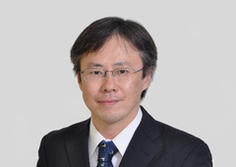Message from CIMoS Director

CIMoS Director
Shuji Akiyama
CIMoS was established on April 1, 2013, opening as a research center to promote the integration of life science and material science disciplines into a thriving interdisciplinary area of fundamental research. The center is made up of motivated researchers with diverse scientific training and careers, from young scientists confronting new frontiers, to senior scientists leading the way in existing fields.
The mission of CIMoS is to analyze molecular systems in nature to find the logic behind the sharing and control of information between the different spatiotemporal hierarchies, with the ultimate goal of creating novel molecular systems on the basis of these findings.
"Molecule" and "Hierarchy" are the key words describing the research activities in which members of CIMoS are engaged. Consider the multiple layers of spatiotemporal hierarchies found in a simple protein molecule: proteins are polypeptide chains made up of a number of amino acid residues, of which the local conformations of each are repeatedly altered on time scales ranging from picoseconds to nanoseconds. Tens to hundreds of amino acid residues comprising proteins come in close contact, forming globular domains that are often under rigid-body fluctuations on time scales of nanoseconds to milliseconds. Finally, polypeptide chains undergo large-scale conformational changes upon folding and/or unfolding on time scales of microseconds to seconds.
When considering higher orders within spatiotemporal hierarchies, we find larger-scale and slower dynamic behaviors of protein molecules, which are assembled and interact further with other macromolecules under heterogeneous conditions. Cells encapsulating complicated networks of such intermolecular interactions communicate with each other to form organisms, which are further self-organized to form individuals.
It often appears as though phenomena in different and presumably unconnected hierarchies have nothing to do with each other. However, studies so far afford instances in which a local perturbation on an amino acid residue, for example, within the protein structure could influence the behaviors of even individuals. This implies that molecules possess ways to significantly impact behaviors of higher-order systems through inter-hierarchy connections. Understanding this logic of interlocking hierarchies is of particular importance in designing new materials exhibiting remarkable function and/or reactivity as molecular systems.
Sophisticated molecular systems are often found in nature, in which a core of constituent molecules is flexibly but robustly coupled to higher orders within the spatiotemporal network. CIMoS aims to play a central role in studying these molecular systems by cooperating with the four departments presently within the IMS, Okazaki Institute for Integrative Bioscience, Research Center for Computational Science, and also with other major domestic and international facilities.
CIMoS Director,
Shuji AKIYAMA

